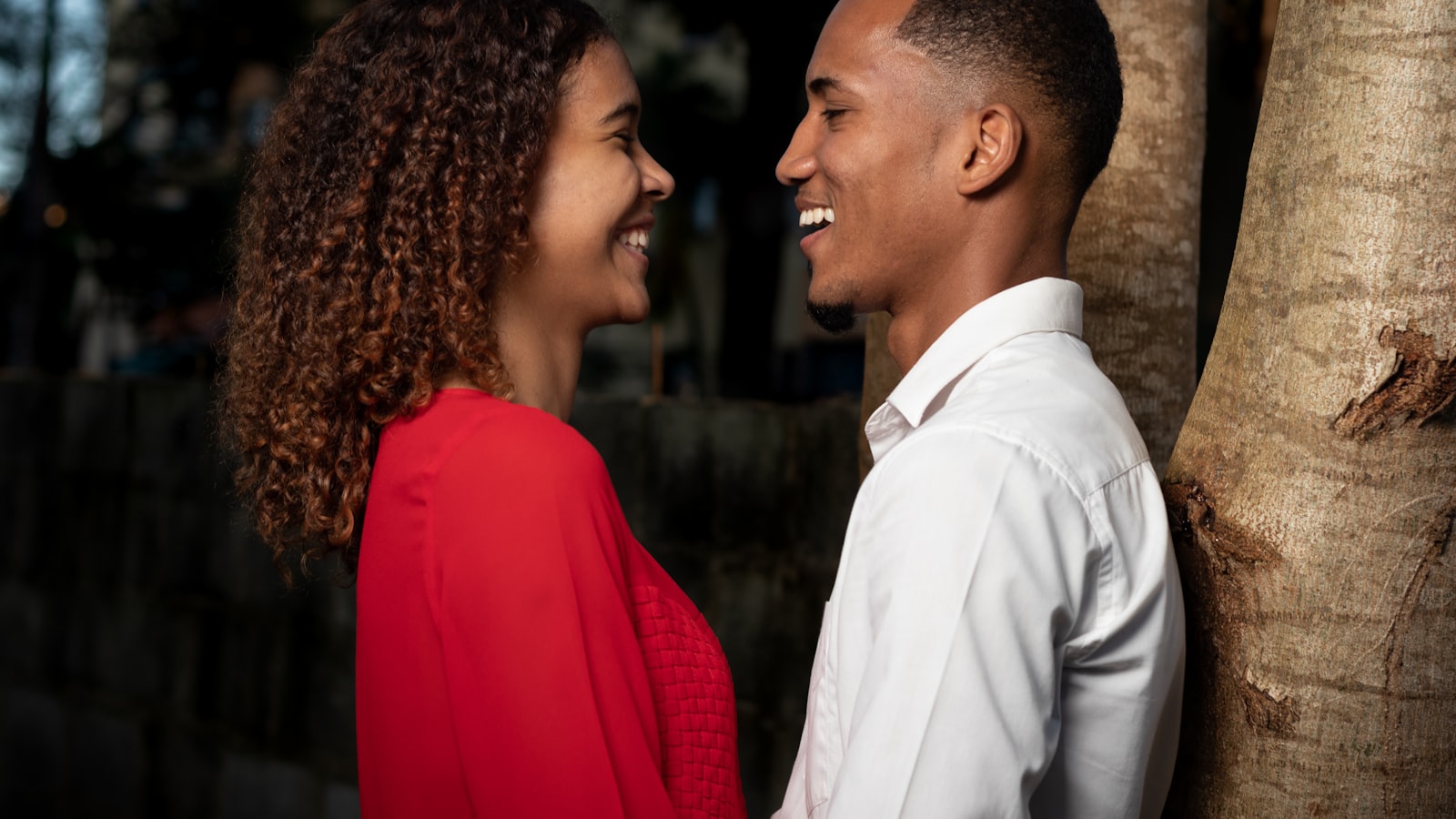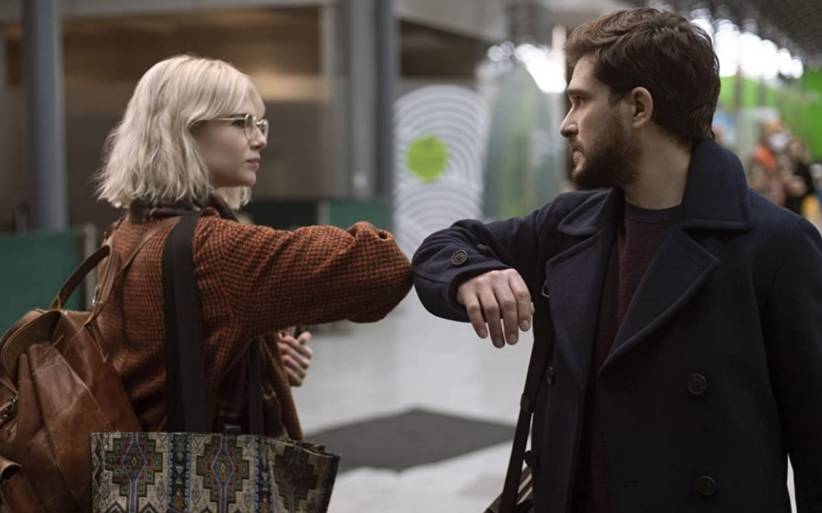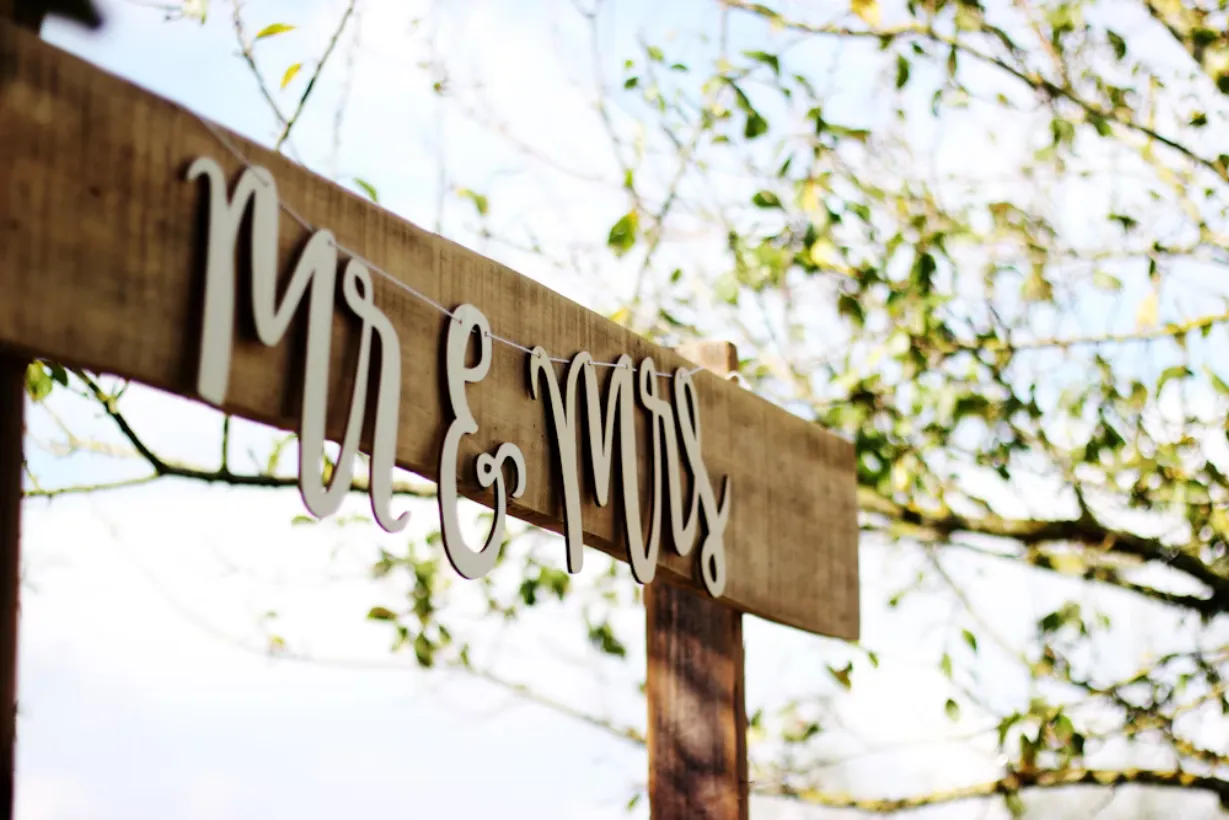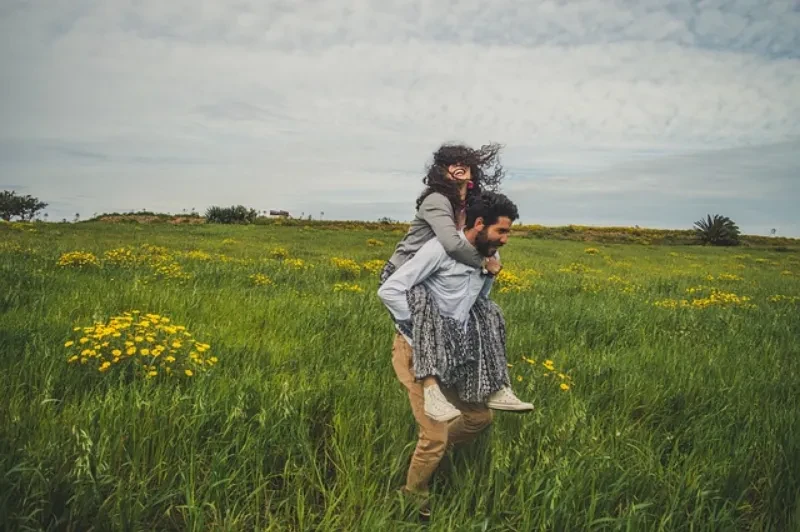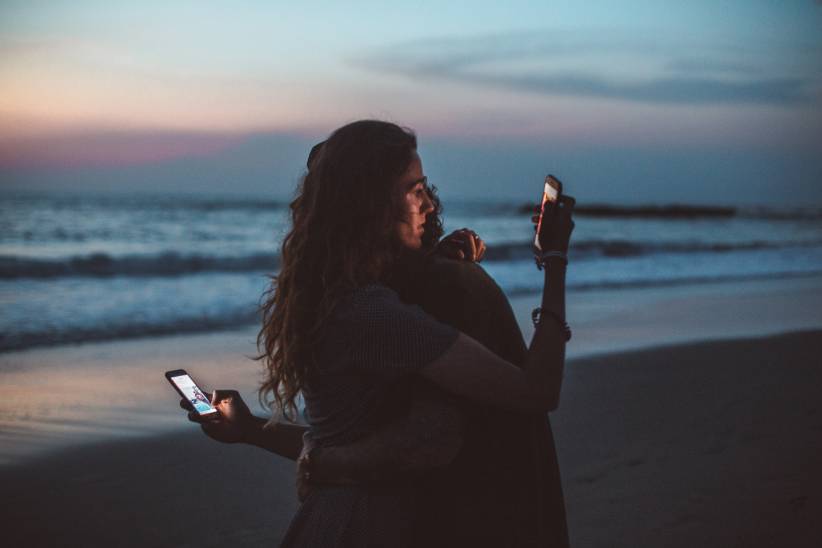- 0 Comments
- Views 49
Are we in a relationship or just dating? It’s a question that has puzzled many of us at some point. The dating vs. relationship debate can be confusing, but fear not, I’m here to help you navigate these tricky waters.
When it comes to dating, it’s all about keeping things casual. You’re getting to know each other, going on dates, and having a good time. There are no strings attached, and you’re free to explore other options. But when you transition into a relationship,things change. You’ve made a commitment to each other and decided to be exclusive.
But what are the signs that a relationship is becoming serious? Well,one major indicator is the mutual feeling between you and your partner. You both need to be on the same page and agree that you’re in a relationship. Communication is key here.
Another sign is that you stop looking around for other potential partners. Once you’re in a serious relationship,you leave all that behind because you believe you’ve found your match. Your mindset shifts,and you focus solely on your partner.
In a relationship, you also start enjoying each other’s company on a deeper level. You spend more time together and have higher expectations from each other. It’s not just about going on dates; it’s about building a future together.
So how do you communicate your need for commitment? It’s important to have an open and honest conversation with your partner about where you see the relationship going. Express your desires and expectations, and listen to theirs as well. This will help both of you understand each other’s needs and make informed decisions.
In conclusion, dating and relationships are different stages of knowing each other and developing feelings. Dating is more casual,while being in a relationship involves commitment and accountability. Understanding the signs of transitioning from dating to a relationship is crucial for navigating this complex journey of love and connection.
How do you know if you’re just dating or in a committed relationship?Let’s dive into this captivating topic.
Defining Dating: The Casual Stage
Dating is the initial phase of getting to know someone on an individual or group level. It’s a process where you explore the potential for a romantic relationship in the future. However,the concept of dating can vary from person to person, and it can mean different things to different individuals.
In essence,dating is about wanting to connect with someone of the opposite or same sex. It involves asking them out or being asked out and making plans for activities such as going to a movie,taking a walk, or having dinner together. It’s a period of getting to know each other and spending time together.
One defining characteristic of the dating stage is that all options are still on the table. It implies a non-exclusive relationship where both individuals are free to explore other connections. During this time, you are still in the process of discovering who the other person is and whether there is a potential for a deeper connection.
Dating allows you to learn about each other’s interests,values, and compatibility. It’s an opportunity to determine if there is a mutual desire for a long-term relationship. This stage is marked by curiosity, hope, questioning, and sometimes uncertainty.
Defining Dating:The Casual Stage
- Dating is the casual process of getting to know someone individually or in a group
- It can be about wanting to get to know someone by asking them out or being asked out
- Dating involves making plans for activities such as going to a movie,taking a walk, or having dinner
- During the dating phase,both individuals are still exploring other options
- Dating allows individuals to learn about each other and determine if they want a long-term relationship
But how does dating transform into a relationship?Let’s find out in the next section.
[Continue reading: Transitioning to a Relationship: Signs of Change]
Transitioning to a Relationship: Signs of Change
So,you’ve been dating someone for a while,and you’re wondering if things are moving towards a more serious commitment. Here are some signs that indicate a transition from dating to a relationship.
One clear sign is when you start referring to each other as boyfriend, girlfriend,or partner. This shows that you both acknowledge and recognize the exclusive nature of your connection. It’s a step towards solidifying your bond and moving away from the casual dating stage.
Another indication is when you’re no longer dating or sleeping with other people. If you’ve mutually agreed to be monogamous, it means that you’ve made a conscious decision to focus solely on each other. This level of commitment shows that you’re ready for a deeper connection.
Living together or having keys to each other’s homes is another significant step towards a relationship. It demonstrates trust and a willingness to coexist in each other’s personal spaces. It’s a sign that your lives are becoming more intertwined and that you’re building a future together.
Making long-term plans and discussing your future together is also an indicator of transitioning into a relationship. When you start envisioning your lives together and actively include each other in your plans, it shows that you’re thinking beyond the present moment.
Expressions of love,such as saying “I love you” to each other, can be powerful signs of emotional intimacy deepening. These three little words carry weight and convey a level of vulnerability and affection that goes beyond casual dating.
Meeting each other’s families is another milestone in the transition from dating to a relationship. Introducing your partner to your loved ones indicates that they hold an important place in your life. It signifies that you see them as more than just a temporary companion but as someone who could potentially become part of your long-term support system.
Going on holidays together allows you to create shared memories and experiences. It strengthens your bond and solidifies your connection. It’s an opportunity to test compatibility and see how well you navigate different situations as a couple.
As your relationship progresses, you’ll find that you’re getting to know each other on a deeper level. You’re becoming more comfortable with vulnerability and open communication. This emotional intimacy is a crucial aspect of a committed relationship.
Prioritizing each other and the relationship is a clear sign of transition. When you start making decisions with your partner in mind and placing their needs and wants at the forefront, it shows that you value the connection and are invested in its growth.
Trust is the foundation of any healthy relationship. As you transition from dating to a relationship, trust becomes even more essential. You should feel secure in knowing that your partner has your back and that they can rely on you as well.
Signs of Transition from Dating to a Relationship
- You refer to each other as boyfriend, girlfriend,or partner.
- You’re not dating or sleeping with other people (if you’ve agreed to be monogamous).
- You live together or have keys to each other’s homes.
- You make long-term plans together or talk about your future together.
- You’ve said I love you to each other.
- You’ve met each other’s families.
- You’ve gone on holiday together.
- You’ve gotten to know each other on a deeper level and aren’t afraid to be vulnerable with one another.
- You have good communication and aren’t afraid to have (and resolve) disagreements.
- You prioritize each other and the relationship.
- You feel like you can be your genuine, true selves around each other.
- You trust each other.
Now that we’ve explored the signs of transitioning from dating to a relationship, let’s delve into the topic of exclusivity in the next section. Wondering about exclusivity in a relationship?We’ll discuss that next.
Understanding Exclusivity and Commitment
When it comes to relationships,exclusivity and commitment play crucial roles. In an exclusive relationship, you and your partner have made a mutual decision to focus solely on each other. This means that both of you are committed to building a future together and have set boundaries around your relationship.
Exclusivity brings emotional security, as it provides a sense of stability and trust. You both commit to each other,knowing that your connection is a top priority. This fosters loyalty and strengthens the bond between partners.
One of the benefits of being in an exclusive relationship is the opportunity for a deeper connection. By investing more time and energy into the relationship, you can create a stronger emotional bond. Shared experiences and shared goals bring you closer together.
However, being in an exclusive relationship also comes with its challenges. It requires giving up the freedom to date or pursue other romantic interests. This can be difficult for some individuals who enjoy their independence. Additionally,there may be pressure to commit to a long-term future,which can create anxiety or uncertainty.
Effective communication and conflict resolution skills are essential in maintaining an exclusive relationship. Openly discussing your feelings,needs, and desires is crucial for building trust and resolving conflicts when they arise.
It’s important to acknowledge that exclusivity doesn’t eliminate all challenges. There may be moments where you wonder if you’re missing out on other potential connections (commonly referred to as FOMO – Fear of Missing Out). Compatibility issues may also arise later on, making it more challenging when you’re already committed.
Benefits of Being in an Exclusive Relationship
- 1. Emotional Security: Being in an exclusive relationship provides a sense of emotional security as you both commit to each other.
- 2. Trust and Loyalty: Exclusivity fosters trust and loyalty between partners, knowing that you are each other’s top priority.
- 3. Deeper Connection:Being exclusive allows for a deeper connection as you invest more time and energy into the relationship.
- 4. Shared Goals: In an exclusive relationship, you can work together towards shared goals, creating a stronger bond.
- 5. Eliminates Jealousy: Exclusivity eliminates the need for jealousy, as you know that your partner is committed to you.
Potential Challenges of Being in an Exclusive Relationship
- 1. Lack of Freedom:Exclusivity means giving up the freedom to date or pursue other romantic interests.
- 2. Pressure to Commit: Being in an exclusive relationship may put pressure on both partners to commit to a long-term future.
- 3. Conflict Resolution:With exclusivity comes the need for effective communication and conflict resolution skills.
- 4. Fear of Missing Out (FOMO): There might be moments where you wonder if you’re missing out on other potential connections.
- 5. Compatibility Issues:Discovering compatibility issues later on can be more challenging when you’re already committed.
In our next section, we’ll dive into the role of intimacy in a relationship. Intimacy is a vital component that goes beyond exclusivity and commitment. Join us as we explore this intriguing topic.
What about the role of intimacy in a relationship? Let’s explore this in our next section.
The Role of Intimacy in a Relationship
Intimacy is a vital component of any healthy and fulfilling relationship. It goes beyond physical attraction and chemistry, encompassing emotional connection, trust,vulnerability,and openness. Intimacy allows you to create a deep sense of closeness and understanding with your partner.
There are various forms of intimacy that can be cultivated in a relationship. Mental or intellectual intimacy involves exploring new things together,such as taking a cooking class or engaging in stimulating discussions. Emotional intimacy involves sharing your innermost thoughts, desires,and fears,creating a safe space for open communication.
Building intimacy also includes experiential intimacy through teamwork and shared hobbies. This type of intimacy is fostered by engaging in activities together that require collaboration and mutual support.
Respect plays a crucial role in developing intimacy. Honoring boundaries,giving each other space when needed,and supporting each other’s goals and interests demonstrate respect and contribute to emotional security within the relationship.
Establishing clear boundaries is essential in building trust, respect,and emotional safety. Communicating your boundaries clearly and respectfully while respecting your partner’s boundaries creates an environment where both individuals feel valued and understood.
To build intimacy, finding ways to laugh together and lighten the mood can be beneficial. Laughter eases tension and strengthens the connection between partners.
Ways to Build Intimacy in a Relationship
- Share your innermost thoughts and feelings with your partner
- Support each other through challenging times
- Develop a shared sense of the future
- Cultivate experiential intimacy through teamwork and shared hobbies
- Show mutual respect by honoring boundaries, giving space, and supporting each other’s goals and interests
- Find ways to laugh together to ease tension and lighten the mood
- Build mental or intellectual intimacy by learning new things together
- Encourage emotional intimacy by asking open-ended questions about desires, fears,and what makes each other feel loved
- Establish clear and consistent boundaries to build trust, respect,and emotional safety
- Communicate your boundaries clearly and respectfully, while respecting the other person’s boundaries
As relationships progress from dating to a committed partnership,the level of intimacy tends to deepen. The transition from casual dating to exclusivity often involves an increase in emotional intimacy as both individuals invest more time,energy, and trust into the relationship.
In conclusion,intimacy is a vital aspect of any relationship. It involves emotional connection, trust, vulnerability,and openness. Building intimacy requires effective communication, respect for boundaries, shared experiences,and a willingness to cultivate deeper connections on both an emotional and intellectual level.
How do you communicate your needs in a relationship or while dating? Let’s discuss this next.
Communicating Your Needs: Dating Vs. Relationship
Communication is critical to any healthy relationship, whether you’re dating casually or in a committed relationship. However,the nature of communication can vary depending on the stage of the relationship.
When you’re in the dating phase,communication tends to be more casual and lighthearted. It’s about getting to know each other through fun and playful conversations,sharing stories and experiences,and exploring common interests. The focus is on building a connection and enjoying each other’s company.
As your relationship becomes more serious, communication naturally evolves to cover more important topics such as goals, values, and future plans. You may find yourself having deeper and more meaningful conversations about your hopes and dreams,fears and insecurities, and your expectations for the relationship.
In a committed relationship,effective communication requires a higher level of openness,honesty,and vulnerability. It’s about expressing your needs, desires,and concerns honestly while actively listening to your partner. This level of communication fosters trust,understanding,and emotional intimacy.
If you’re unsure about the status of your relationship or want to determine if you’re just dating or in something more serious,it’s essential to have a real conversation with your partner. Sit down together and discuss where you both stand. Express your feelings, desires, and expectations for the future. This open dialogue helps manage expectations and prevents potential heartache down the road.
Remember that effective communication is an ongoing process in both dating and relationships. It’s important to regularly check in with each other, express your needs clearly but respectfully, and actively listen to your partner’s perspective.
Communicating Your Needs: Dating Vs. Relationship
- Communication is critical to any healthy relationship, whether you’re dating or in a committed relationship.
- When you’re dating,communication tends to be casual and lighthearted.
- As your relationship becomes more serious, communication may shift to more important topics such as goals,values,and future plans.
- A relationship requires a higher level of openness,honesty, and vulnerability.
- If you’re trying to determine if you and your partner are dating, you can always choose to sit down and have a real conversation about the current status of your relationship.
Let’s wrap up in our conclusion next.
Deciphering Dating and Relationships: A Final Word
Understanding the difference between dating and being in a relationship is essential for navigating the complexities of modern romance. Dating is a process of getting to know someone,exploring compatibility,and deciding if a deeper connection is possible. On the other hand, being in a relationship involves commitment, exclusivity,and shared goals for the future. While there may be overlapping traits between dating and relationships, it’s crucial to recognize the distinctions in expectations,experiences, and accountability. Whether you’re just dating or in a committed relationship,both experiences contribute to personal growth and understanding of your desires in the long run.
[Continue reading: What are the major signs of a relationship becoming serious?]
Frequently Asked Questions
What are the major signs of a relationship becoming serious?
Signs of a relationship becoming serious include spending more time together, meeting each other’s friends and family, prioritizing each other,building trust,and losing interest in others. As the relationship progresses, it becomes about commitment, real love, and understanding the future of the bond.
How do I communicate my need for commitment?
When it comes to communicating your need for commitment, it’s important to have an open and honest conversation with your partner. Express your desires and expectations for the future of the relationship. Checking in and engaging in face-to-face communication can help manage expectations and prevent potential heartache down the road.


